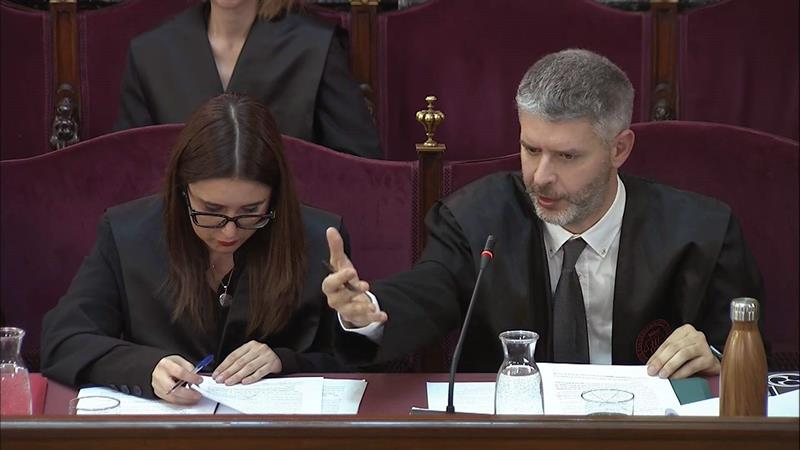20.03.2019 - 16:14
|
Actualització: 20.03.2019 - 17:14
Lawyers defending Catalan political prisoners on trial in Madrid are increasingly protesting decisions by judges at Spain’s Supreme Court, which they argue undermine their clients’ right to defense. Several defense teams presented formal complaints earlier in the week against the court’s ban against videos during the cross-examination of witnesses.
With around 30 police officers in all due to testify about their experience during the 2017 independence referendum and the preceding days, lawyers believe it’s “essential” they be able to contradict testimonies with footage of the events. “We’re trying to show what happened, but the courtroom’s criteria don’t allow us to fully exercise the right to defense by contradicting everything said in order for the truth to prevail,” alleged Marina Roig, lawyer of activist Jordi Cuixart. Lawyers also complaint about Spanish police officers and other witnesses not showing their faces, which they allege undermines defendants’ presumption of innocence.
Courtroom president Manuel Marchena has repeatedly put down lawyers’ complaints arguing that judges will watch the videos in due time, when testimonies are over, and therefore there’s no need to show them before. The International Trial Watch (ITW) organization stressed that “the right to a trial without delays can’t be invoked by this court against the right to defense, especially considering the prison sentences requested by prosecutors.”
No objective impartiality
In their most recent assessment of the trial, ITW raised concerns over judges’ “lack of objective impartiality” after Marchena interrogated former police chief Josep Lluís Trapero about a meeting with top government officials. The international organization also criticized the courtroom for threatening witnesses who allegedly avoided questions with legal action, while others—including Spain’s former president Mariano Rajoy and his ministers—received no warning.
Defense lawyer Roig objected in the courtroom on Wednesday on the grounds that one of the Guardia Civil officers under cross-examination was giving his testimony about events that defenses didn’t know he had taken part in. Roig and other defense teams complaint that this didn’t give them time to prepare their cross-examination.


